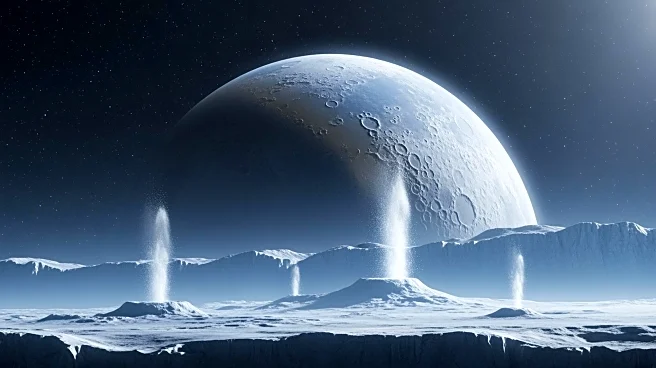What's Happening?
Recent scientific analysis has provided new evidence suggesting that Enceladus, a moon of Saturn, may have the potential to support life. The study, published in Nature Astronomy, indicates that Enceladus possesses the three major requirements for life:
liquid water, a source of energy, and essential molecules. The Cassini spacecraft, which explored Saturn and its moons, collected samples from Enceladus in 2008, revealing organic compounds that could be precursors to life. Although Cassini's instruments were not designed for this type of analysis, the findings have sparked interest in the moon's habitability.
Why It's Important?
The discovery of potential life-supporting conditions on Enceladus is significant for the scientific community and the broader understanding of life beyond Earth. It challenges existing notions of where life can exist and expands the search for extraterrestrial life to include moons with subsurface oceans. This finding could influence future space missions and research priorities, as scientists may prioritize exploring Enceladus and similar celestial bodies. The implications extend to astrobiology, planetary science, and the search for life in the universe.
What's Next?
The scientific community may advocate for new missions to Enceladus to further investigate its potential for life. These missions could involve more advanced spacecraft equipped with modern instruments capable of detecting biosignatures. The data from Cassini continues to be analyzed, and future studies may provide additional insights into the moon's habitability. The findings could also prompt discussions about the ethical considerations of exploring and potentially contaminating celestial bodies that may harbor life.
Beyond the Headlines
The potential for life on Enceladus raises ethical questions about space exploration and the responsibility to avoid contaminating extraterrestrial environments. It also highlights the importance of international collaboration in space research, as the search for life is a global scientific endeavor. The findings may inspire public interest and support for space exploration, emphasizing the need for continued investment in scientific research and technology development.















